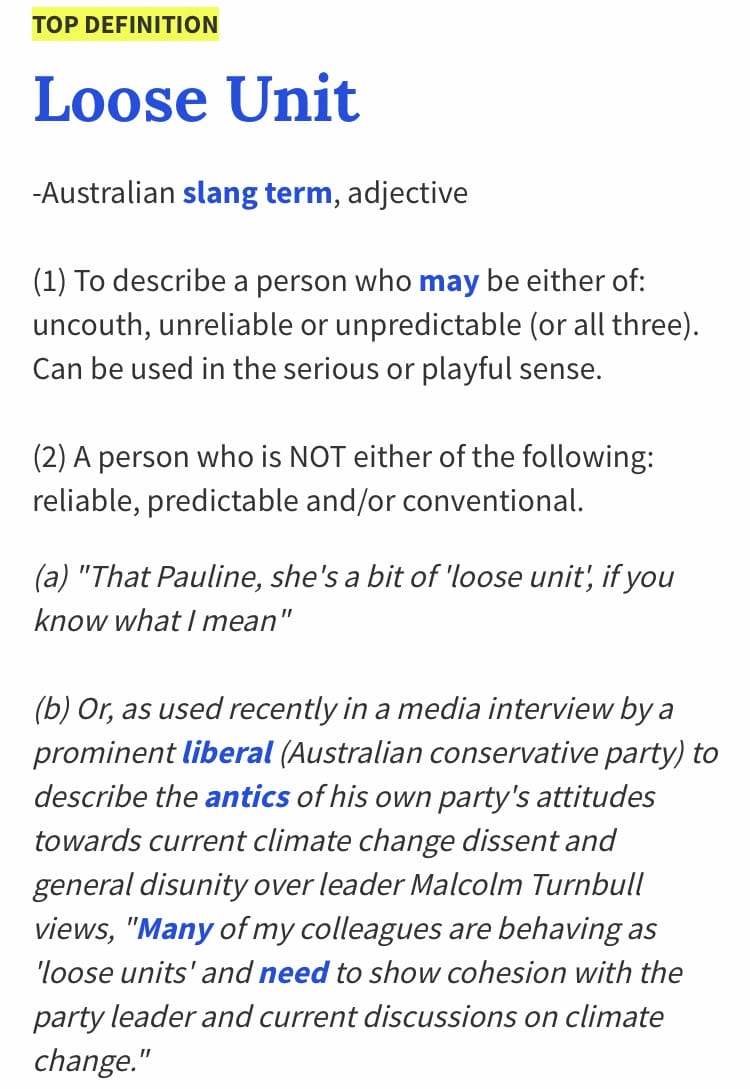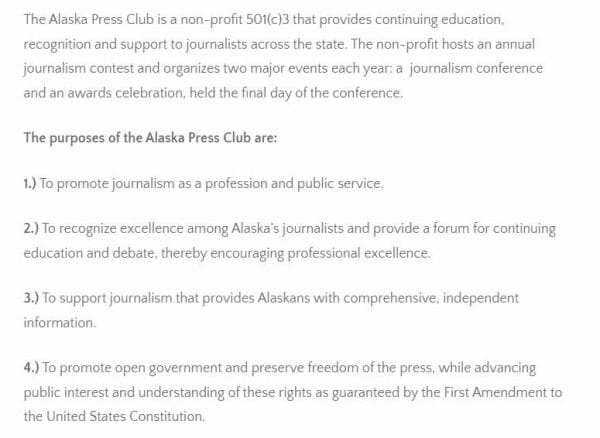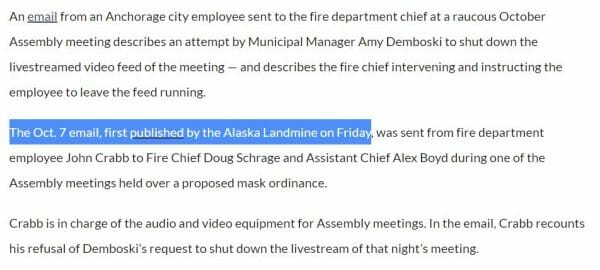Hard to believe it’s already May. Only 17 days remain until the constitutional session limit, and still only the House has passed its version of the operating budget. The candidate filing deadline of June 1 is just a month away, but legal challenges over some Anchorage Senate pairings are still being litigated. Ballots for the special congressional primary election went out in the mail this week. And the Alaska Democratic Party is holding their state convention this weekend in Seward.
A friendly message and reminder to all our readers. The Landmine is made possible by myself and a team of awesome Alaskans. It takes a lot of work to provide the content we do. I am back in Juneau to report on the Legislature. Living in Juneau for session is not cheap. If you enjoy the content we provide, please consider making a one time or recurring monthly donation. You can click here to donate. We have a donation system that makes it super easy. We would really appreciate it. And thanks to everyone who has been supportive!
End of Session?
The constitutional session limit of 121 days is May 18. For the session to end, the Legislature needs to pass an operating and capital budget. Technically they just need to pass an operating budget but they always pass both. The House passed their version of the operating budget on April 9 and sent it to the Senate. The Senate Finance Committee has done some work but not yet passed it out of committee to the floor. They are also working on their version of the capital budget (the operating budget starts in the House and the capital budget starts in the Senate). The Senate Finance Committee was supposed to hear capital budget amendments on Friday, but that meeting was cancelled.
Senator Bert Stedman (R – Sitka), who co-chairs the Senate Finance Committee and basically runs the show, has said his desire is to get out a few days before the end of session. Governor Mike Dunleavy (R – Alaska) echoed that in a press conference this week. So, that would leave just two weeks to get everything wrapped up. In addition to the budget, there are several higher priority bills floating around. These include Senate President Peter Micciche’s (R – Soldotna) alcohol rewrite bill and Representative Calvin Schrage’s (I – Anchorage) campaign donation limits bill, among others. Micciche’s bill passed the Senate and Schrage’s bill passed the House, but have yet to pass the other bodies. If either body makes changes to the bill they receive, a conference committee is required unless the first body agrees with the changes from the second. It’s starting to get down to the wire.
There are two possible scenarios with the budget:
- The Senate could pass their version of the capital budget and send it to the House. The House would then pass their version and it would end up in a conference committee. In this scenario, the Senate would pass the House version of the operating budget and then it would end up in a conference committee. This is how the budgets have historically been passed.
- Another scenario is a bit more messy. Because the Senate is in possession of House Bill 281, the House version of the operating budget, they could get tricky. The Senate Finance Committee could jam their version of the capital budget and even the supplemental operating budget in that bill. The Senate could then pass that and send it to the House. If the House does not concur, a conference committee would be appointed.
In scenario two, if the Senate waits until the last minute, it puts the House in an awkward spot. If they fail to concur and only days remain until the end of session, a conference committee would be rushed to finish quickly. Then both bodies would need to approve that. They could technically extend ten days buy that requires a two thirds vote of each body. The Senate could also get loose and adjourn after passing the budget described in scenario two. While that it is less likely, it’s possible. It all depends on how things go this week. Keep in mind, 59 of the 60 legislators are up for re-election. They do not want to be stuck in Juneau this summer in special sessions. They want to be home campaigning.
And there is still the whole effective date issue that we saw last year. The House failed to get the two thirds vote for the effective when they passed their version of the operating budget on April 9 (27 are required in the House and they got 25). Per the Alaska Constitution, a bill goes into effect in 90 days unless two thirds of both bodies vote to make it sooner. The new fiscal year starts on July 1. I asked several Republican minority members this week if they plan on leveraging the effective date issue again. Some said it depends on the size of the dividend, others said they want to see what the final budget looks like. Never a dull moment.
Will Alaska keep unlimited political donations this election cycle?
The following is an excerpt from the 4/21/2022 edition of the Alaska Political Report. You can click here for more information about the Alaska Political Report. A subscription is $1,299/year per organization. Discounted pricing is available for non-profits and government entities. We will be providing extensive election coverage this year in addition to our session coverage. If you have any questions or would like to subscribe, please email jeff@akpoliticalreport.com.
Last July, the Ninth Circuit Court of Appeals struck down Alaska’s individual-to-candidate contribution limit of $500 a year, in addition to limits on giving to political groups and aggregate contribution limits to candidates from nonresidents. The ruling said new, higher limits could be put back in place, but those would require legislative action or a citizens initiative.
In November, Alaska Public Offices Commission staff made a questionable ruling that temporarily limited individual-to-candidate donations to $1,500 per year – three times the old limit. State and local candidates accepted the new limit nonetheless, but in March, the commission voted against the staff recommendations, saying that any new limits would require action from the Legislature.
Several legislators, in both bodies, introduced bills this session to limit campaign contributions. But the only legislation getting traction is House Bill 234, from Anchorage independent Rep. Calvin Schrage. HB 234 caps individual-to-candidate contributions at $2,000 per election cycle to legislative candidates, and $4,000 to candidates for governor and lieutenant governor. It also limits out-of-state donations to 25% of total contributions.
After several hearings in the House State Affairs Committee, Schrage’s bill passed the House last month on a vote of 21-18 – the minimum number of votes required. It was sent over to the Senate, where it has had two hearings in the Senate State Affairs Committee. If the Legislature does pass a campaign contribution limit bill this session, it will be HB 234.
There is less than a month left before the constitutional session limit. If the Senate passes the bill, it will almost certainly be different than the House version — likely with higher limits. This means the House would have to either concur with the Senate’s changes or, if they don’t, a conference committee will be appointed to work out the differences. And even if the Legislature passes the bill, there is speculation that GOP Gov. Mike Dunleavy will veto the bill. In March, Dunleavy told the Anchorage Daily News, “You know me: I’m the guy that wants people to be able to drive four wheelers on the road. I’m a freedom guy. My tendency is to just let people do what they want in campaign finance law, as long as it’s disclosed and it’s accurate.”
We spoke with several senators, few of whom indicated the bill is a priority. Wasilla Republican Sen. Mike Shower, who chairs the State Affairs Committee, told the Political Report he supports campaign limits to ensure a level playing field but wants to review the constitutionality of the bill. He added that he is waiting on amendments from committee members.
Kodiak Republican Sen. Gary Stevens, who controls which legislation goes to the floor as rules chair, told the Political Report he supports limits but wants to see the out-of-state limits changed from a percentage to a dollar figure. “It would be a real shame and disservice to the public to leave without passing a contribution limits bill,” Stevens told the Political Report.
Senate President Peter Micciche, R-Soldotna, and Anchorage Republican Sen. Roger Holland both told the Political Report they support limits, but did not indicate if they support the limits set in HB 234.
Anchorage Democratic Sen. Tom Begich, who serves as minority leader, does want the bill advanced from the State Affairs Committee and passed by the Senate. Begich, along with four of his five minority members, cross-sponsored the bill when it came to the Senate. “My intent is to work with my caucus and Sen. Shower to get the bill out of committee. This is an important priority for Alaskans,” Begich told the Political Report.
Schrage, who introduced the bill, told the Political Report: “There is not a lot of time left, but there is still a month and there is only one committee referral in the Senate.” He acknowledged that the legislation is not a priority in the Senate, but said senators realize that it’s important to have some type of limits. Asked what he thought the chances are of the bill passing the Senate, Schrage said: “Maybe 70%.”
As of today, the bill is not scheduled to be heard in the State Affairs Committee next week. Dunleavy’s press office did not respond to questions about whether he intends to sign the bill, veto the bill, or let it become law if passed by the Legislature. Even if the Legislature passes the bill, it’s unlikely it would go into effect immediately. The House failed to pass an immediate effective date in a 22-17 vote, when two thirds — 27 votes in the House and 14 in the Senate — are required for a bill to go into effect in less than 90 days. So, even if the bill were to pass the Legislature by the end of session and Dunleavy signs it into law — which are questionable, individual-to-candidate contribution limits would still be unlimited until late August or early September.
*HB 234 is scheduled to be heard in the Senate State Affairs Committee this week.
Other Happenings
The candidate filing deadline of June 1 is one month away. Lots of people are deciding whether or not to run or what seat they want to run for. Here are some recent filings:
- Bethel Mayor and all around Loose Unit Mark Springer filed a letter of intent on Friday (4/29/2022) for House. The incumbent, Representative Tiffany Zulkosky (D – Bethel) has not yet filed for re-election or said whether she intends to.
- Mark Anthony Cox, a conservative who recently lost an Anchorage School Board race to Margo Bellamy, filed a letter of intent for Senate on 4/21/2022. Cox lives in the new open Taku/Bayshore Senate district. Representative Chris Tuck (D – Anchorage) has also filed to run for the seat. This could change depending on how the court rules on redistricting.
There’s been a lot of chatter that Representative James Kaufman (R – Anchorage) will run for the Senate if Senator Josh Revak (R – Anchorage) runs for the U.S. House in the regular election, which he has filed for. Revak can’t run for Congress and the State Senate. The special primary election is not until June 11 but the filing deadline is June 1, which forces him to make a choice about the regular election before he knows the results of the special primary election. Kaufman told me he’s looking at his options.
There’s a congressional debate scheduled on Friday (5/6/2022) afternoon in Bethel. Candidates confirmed are Mary Peltola, Tara Sweeney, Emil Notti, and….. Sarah Palin. It will be held in the high school cafeteria.
The House Committee on Committees met on Friday and removed Representative David Eastman (R – Wasilla) from the Rules Committee. The full House approved the decision, with Eastman and Representative Christopher Kurka (R – Wasilla) being the only no votes. The House also voted to remove Eastman as an alternate from the Select Committee on Legislative Ethics. This all came at the request of Eastman’s fellow Republican minority members, who say they are fed up with his antics. But another motivating factor was probably the Anchorage Republican members, who want to distance themselves from Eastman in the upcoming elections.
The Alaska Democratic Party is holding their state convention this weekend in Seward. Of course, masks are required….

One of the greatest press releases of all time. Love those Libertarians.
Libertarians are awesome. This is one of the greatest press releases of all time. Thorne is running for the U.S. Senate. Bye is running for the U.S. House. pic.twitter.com/pe4OSoZ8d6
— The Alaska Landmine (@alaskalandmine) May 2, 2022
Just going to leave this right here. Great find by the Alaska Stalker. Lance and Mary Ann Pruitt are really enjoying that $30,000 a month from the Kelly Tshibaka campaign!

Dave Stieren and Andrew Jensen working real hard to keep those nice government salaries.
Like Dave and Andrew aren’t trying to hold onto their high paid state government jobs ????. #akleg pic.twitter.com/CgQUn7KDvZ
— The Alaska Landmine (@alaskalandmine) May 1, 2022
This Week’s Loose Unit

There was definitely a lot of competition this week. But a last minute announcement made this week’s designee clear. This week’s Loose Unit is the Alaska Press Club. Yesterday, the Alaska Press Club held their annual awards ceremony (virtual, of course). I’ve often characterized this as their annual circle jerk awards as they literally give out hundreds of awards. At the end they announced the Public Service Award and the First Amendment Award. These are the higher profile awards.
The First Amendment Award went to Anchorage Fire Department employee John Crabb, and his superiors, for not cutting the live feed at one of the contentious Anchorage Assembly mask mandate meetings last October. Crabb was ordered to cut the feed by Municipal Manager Amy Demboski, which he refused to do. This is a great choice for the award. But where it gets loose is a small detail the Alaska Press Club left out.
The Alaska Press Club, which purports to “recognize and support journalists across the state” failed to mention the very news organization, the Alaska Landmine, who researched and broke the story about Crabb. Very loose. They clearly aren’t fans of the Alaska Landmine! Our live coverage of the event also caught Demboski on video coming out of the media room after talking to Crabb. Even the Anchorage Daily News credited us with breaking the story. Tom Hewitt, the opinions editor at the ADN and an Alaska Press Club board member, was even one of the awards presenters. Super loose.
If you have a nomination for this week’s Loose Unit, or if you have any political news, stories or gossip (or any old pics of politicians or public officials) please email me at jeff@alaskalandmine.com.








Shortest Sunday Minefield on record?
Apologize. We seem to be having an issue where some articles are not fully loading for some reason. We are working on it. If you refresh your browser, it should load.
Hey Jeff – Newsflash – you’re a blogger. Sometimes you write stuff that gets picked up by the actual press – but so does the Blue Alaskan.
Speaking of the Blue Alaskan – where’s that donation?
So….. is there like a license Jeff has to apply for to be “Actual Press”?
Journalism is like pornography. You will know it when you see it.
Hey Jeff – Missing the Loose Unit. Always liked that one. Please reinstate it! This one was short, but really good!
Apologize. We seem to be having an issue where some articles are not fully loading for some reason. We are working on it. If you refresh your browser, it should load.
Did you submit work for consideration if you wanted a Press Club award this badly? If not, then you’re picking a fight with a lot of people who you don’t need to pick a fight with. If you want to be such a rebel, don’t get mad when “the cool kids” don’t welcome you into their ranks. People just use you when you’re convenient to their agenda and then talk behind your back when you cease being useful to their cause… or when you eventually turn on them when you wake up with an ax to grind.
When your right, but wrong. If this is supposed to be a news site, using it to air petty grievances
about how the Landmine did not get credit for shining the light on Anchorage Fire Department employee John Crabb who risked his job to protect access to an open meeting is not attractive.
Keep doing the good work you are doing and the light will continue to shine: even sometimes on where credit is due.